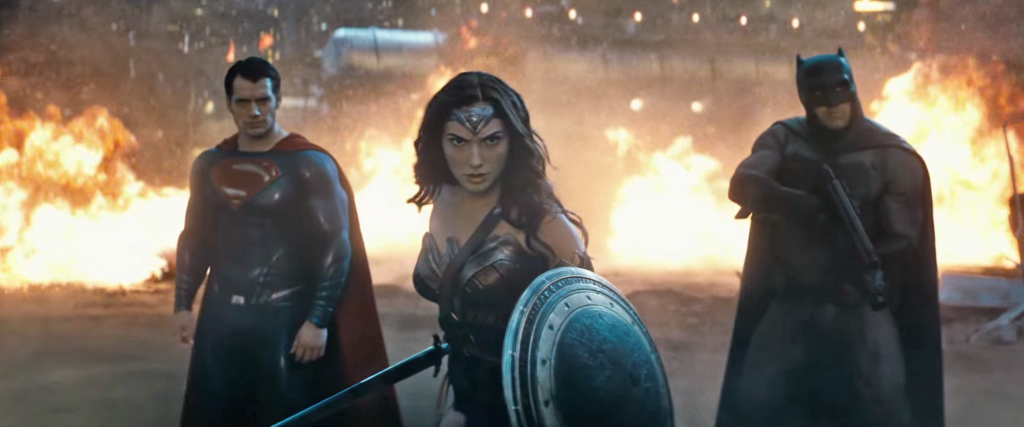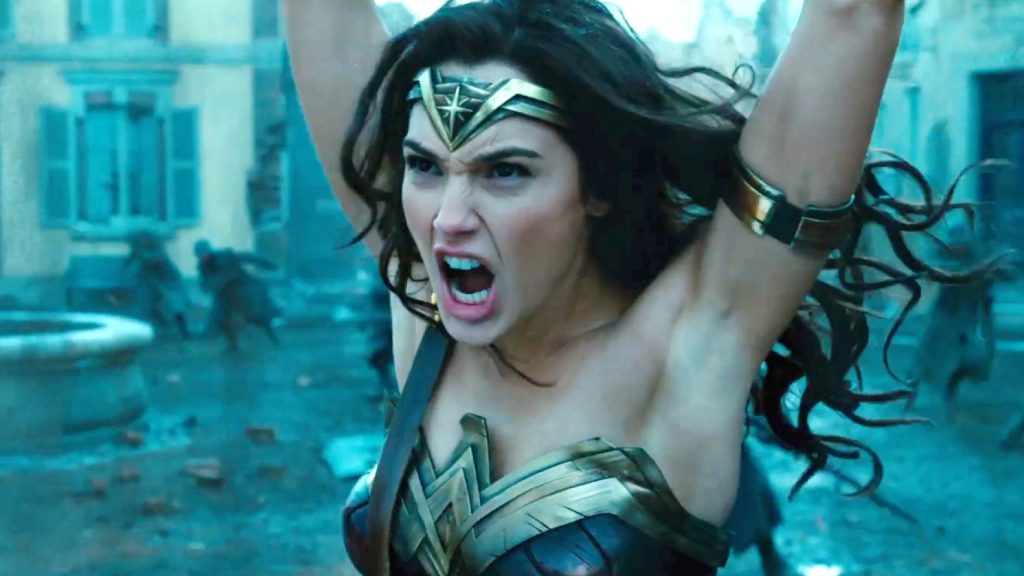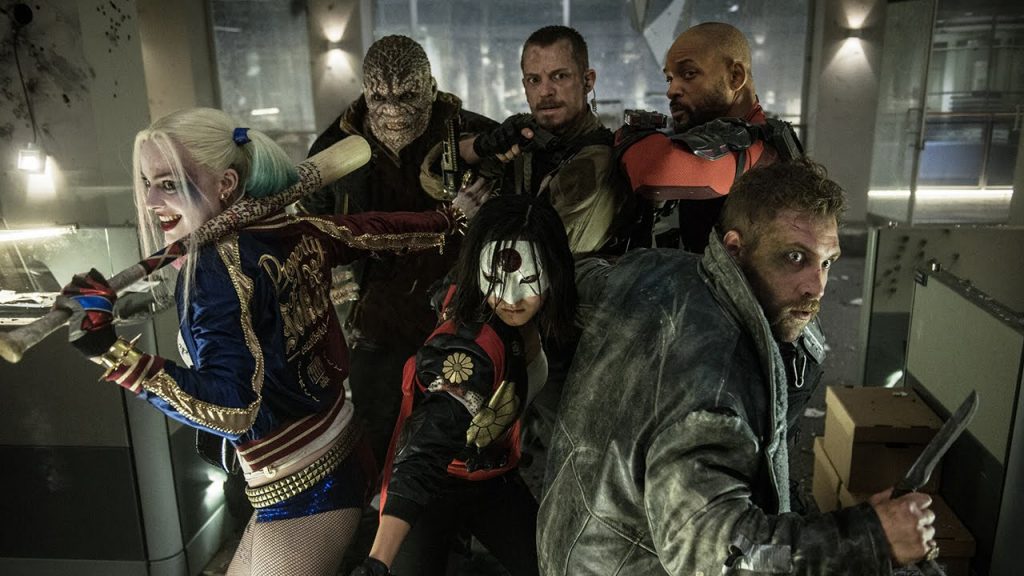Here’s what an epic clusterfuck Batman v Superman: Dawn of Justice turned out to be: A few days after the film was released, in the thick of everyone trying to process what the hell Zack Snyder had done, I had an idea that struck me as funny. I tapped it out in my phone, screenshot it, and sent it over Twitter as a statement from Snyder on the reaction to his work. It read:
We see a superhero movie in every multiplex, on every home theater shelf, and we tolerate it. We tolerate it because it’s common, it’s trivial. We tolerate it morning, noon, and night. Well, not anymore; I’m setting the example. What I’ve done is going to be puzzled over and studied and followed…forever.
I adapted it from a monologue in Se7en; specifically, John Doe ranting about the motive behind his murders to Mills and Somerset. I figured it’d give my film nerd friends a laugh and we’d all move on. However, it turned out that plenty of my friends, and friends of those friends, thought that was a real thing Snyder had said. Think about that: Snyder had made something so provocative, people equated him to a deranged serial killer.
When Man of Steel was released, a lot was made out of the Battle of Metropolis and the death of Zod, but opinions were more divided; there were just as many people who loved it as there were those who hated it. When BvS came out, it seemed to vindicate the anti-MoS crowd with a dark, punishing tone poem of a movie that barely made any damn sense. David Ayer’s Suicide Squad dropped later that year, after reshoots that suspiciously coincided with the enthusiastic reaction to a comical trailer cut to “Bohemian Rhapsody.” The resulting movie wanted so badly to be Guardians of the Galaxy, and the cast of characters simply wasn’t charming enough to keep audiences from seeing right through it. The DCEU was quickly turning into the red-headed stepchild of Hollywood, and I was bracing myself for a similar reaction to Wonder Woman.
That reaction never came. Under unthinkable pressure, Patty Jenkins made an undeniable ass-kicker of a film, buying the DCEU a critical reprieve and giving it a path forward. You could say that makes her a hero…but the narrative of a hero demands a villain, and that can be counterproductive when there are lessons to be learned from this success.
On June 17th of this year, the entertainment website Polygon published a piece by Eric Smith titled “The DCEU has a problem – everybody likes Wonder Woman.” In it, Smith examines the implications of Wonder Woman‘s success where the other DCEU movies seemingly failed. Certainly there’s something to be examined here; only a fool uses Rotten Tomatoes as an objective marker of quality (at this time I’d like to throw you over to Harry Brewis at Smugfilm for a pro-click essay on this subject), but when one movie’s scoring 92% on that site while the others settle at 55%, 25%, and 27%, somebody clearly worked some magic. Smith’s conclusion is that Wonder Woman is more “optimistic,” whereas Snyder’s movies and Suicide Squad share “a fundamentally selfish worldview — where heroism is a test of self, not a service performed by other people.” Smith writes:
The problem is that Snyder’s DCEU is fueled entirely by ego. His superheroes are Nietzsche’s ubermensch, figures that are so powerful that their motives are somehow beyond the comprehension of the peons who can only get close to Superman when they buy a ticket. It’s as if he expects us to worship his Superman because we’re supposed to show deference to a superior being, a request that’s off-putting because it’s so condescending.
Notice how he refers to “Snyder’s DCEU.” Earlier, he refers to Snyder as “the primary architect of the DCEU,” something that’s supported by the Executive Producer credit Snyder and his wife Deborah have on all the DCEU movies. So because it’s “Snyder’s DCEU,” that makes him responsible for Suicide Squad and everything wrong with it. He implies as much earlier (emphasis mine): “In Snyder’s DCEU, superheroes…[are] either gods saddled with a heavy burden, or conscripts recruited against their will.”
Yet according to the premise of the piece, Jenkins somehow blindsided Snyder (who has a “Story By” co-credit on the film) with a good, positive-minded movie that directly contradicts the shitty, cynical ones, and now he has to somehow marry these opposing forces in Justice League.
You guys see the problem here, right?
For the sake of argument, though, let’s ignore Smith’s faux pas and work on the assumption that Patty Jenkins made her own movie with minimal input from Snyder or Warner Bros, allowing her to go off brand. Let’s break down the “optimism” behind Wonder Woman and how it contrasts with the percieved cynicism of, say, Man of Steel. After all, Smith argues, that first movie sets the tone for the DCEU’s “fundamentally selfish worldview.” He writes:
In his two Superman outings, Snyder struggles with the idea of basic human decency. In fact, it seems to be utterly mystifying to him. Kevin Costner’s Jonathan Kent spent most of his screen time in Man of Steel trying to convince Clark not to be Superman, to the point that he was willing to die so his son wouldn’t have to be a hero. He lets himself get picked up in a tornado instead of letting actual Superman carry him to safety, based only on the assumption that there would be witnesses and that Clark would then become a public figure.
For the record, I have my own take on that scene and how it informs Man of Steel as a whole (short version: the first movie is about the struggle to define the self against the oppressive desires of authority, with the key internal conflict of the film stemming from how Pa Kent alternately loved and shackled his son). It’s kind of a sideways approach to the movie, however, and Batman v Superman undermines it a little in the scene where Clark refers to Superman as a dream of his father’s. So okay, let’s chalk that up as evidence that the DCEU thinks altruism is for suckers, right alongside the high body count of the Battle of Metropolis and snapping Zod’s neck. Given that, it’s easy to see where Wonder Woman is different from Man of Steel. Unlike that dumb Randroid Jonathan Kent, who was so afraid of his son becoming the center of a worldwide sociopolitical firestorm that he chose death, Hippolyta totally encourages Diana to be a hero.
[Wonder Woman spoilers incoming.]
Oh, except for the part where she forbids Diana to train because she’s afraid of her daughter finding out that she’s a living superweapon to be used against the evil god that destroyed her ancestors. Hippolyta only lets up because Antiope, after getting caught training Diana in secret, tells her to pull the stick out of her ass and get used to the fact that her daughter just wants to ruckus people like everyone else on Themyscira. Even then, Hippolyta never tells Diana who she really is or how much power she really has—which, by the way, at least Jonathan Kent leveled with his son—out of a desire to protect her. Arguably, not knowing this gets Diana into trouble in the third act and may have even led indirectly to Steve having to sacrifice himself to destroy the payload of Dr. Poison’s gas that was headed for London. Oops.
Oh, speaking of that gas, there’s also that matter of the entire population of Veld getting killed by a testfire of it, shortly after its liberation. Granted, Diana wasn’t responsible for that the way Superman was responsible for Metropolis, but that’s still an entire village wiped out just to give her some pathos, leading to Diana making a balls-out assault on Erich Ludendorff’s base. No, there’s no moment like the one where Superman snaps Zod’s neck to protect a group of innocent people; Diana murders a defenseless Ludendorff because she totally thought he was Ares. It’s all right that he turned out not to be because he was a German in a World War and those don’t count as people, right?
Yeah. “Optimism.”
I adore Wonder Woman, unabashedly, unreservedly. However, if Eric Smith is going to try and argue that it’s a bright superhero adventure that contradicts Snyder’s brand, then I simply can’t imagine he was paying attention. In fact, Smith observes that “The German soldiers are not evil, but are merely under the influence of the manipulative God of War,” forgetting that Diana’s view of humanity is jaded for a reason. It’s the belief that Diana begins her journey on, but when she finally comes face to face with Ares, he explicitly lays out that there is no mind control, that humans just keep trying to destroy themselves and that all he did was put the tools in front of them so he could prove a point to Zeus. You can say “well, he’s lying,” and point to that shot of the German soldiers in a daze after Ares’ defeat, but that ignores the larger dramatic irony of setting the film during the first World War. We know that no matter what Diana does, THEY’RE GONNA FUCKING DO IT ALL OVER AGAIN IN 20 YEARS.
Here’s the thing about people’s reactions to the DCEU: Man of Steel and Batman v Superman try to spin multiple plates, with the former film resembling a character study at times while the latter has the feel of a complicated political thriller (particularly the director’s cut “Ultimate Edition,” which restores enough of the film’s connective tissue to leave me gobsmacked that ANYONE thought the theatrical cut was okay to release). Suicide Squad is more of a straight-ahead narrative, but it flaunts a rudeness that feels mostly disingenuous until, at best, the last third of the movie. In comparison, Wonder Woman is simple, honest, and isn’t playing with mythologies that are deeply ingrained in popular culture. I’m confident that this is what critics and audiences are responding to; it’s a big part of why people respond to the MCU. Jenkins didn’t just make an MCU film, however; the trick she figured out is how to express the unique themes and ideas that the other DCEU films were playing with in the same kind of package.
As far as what those themes and ideas are, let’s go back to Batman v Superman. I can see where Smith’s Übermensch interpretation comes from if I consider the superficial implications of these characters and their actions; Superman as an example for mankind to follow has been part of Snyder’s movies from the jump, and in Batman v. Superman, Clark’s discovery of the weapon that kills Doomsday is directly linked to him withdrawing from the fight to rescue Lois, who had gone after it; his selfishness ends up benefitting him. However, this selfishness isn’t borne out of a distrust of altruism. This is far more apparent in the director’s cut, where Clark’s interest in Batman is sparked by noticing how shit-scared the lower-classes of Gotham are of him, and he ultimately discovers how this violent crusade riles up the law in all the wrong ways (the “Batter up!” political cartoon he sees at the police station) and how it directly affects the innocent families of the people Batman goes after. If anything, it’s Batman who follows a more individualist Nietzschean philosophy, and in the end, he’s the one calling for Wonder Woman’s help in getting the rest of the metahumans together to fight any potential invoming threats.
Clark’s “selfishness” in Snyder’s movies comes down to one moment early on in Man of Steel: “The world’s too big,” Clark cries, locked in a closet, and Martha simply tells him “So make it small.” By concentrating on his mother’s voice, Clark is able to get his burgeoning powers under control, and BvS keeps coming back to that idea through Clark’s relationship with Lois. It’s in Bruce Wayne’s prophetic dream about Superman. It’s in Clark’s vision of his father, who tells him a story of how his own heroic deed went disastrously wrong, and how he finally got over it. “This is my world,” Clark tells Lois just before he flies out to kill Doomsday (and himself in the process), before finally repeating “You are my world.” Clark doesn’t elevate Lois above all else; to him, Lois—the kind, passionate, clever crusader for the truth—and the rest of the world are one and the same.
It was the emotional core of Suicide Squad, too: A group of people cast out of society as “bad guys” who went from bitterly embracing their labels and staying out for themselves to leaning on each other when they realized they had nothing else left. And yes, the theme repeats itself in Wonder Woman; before Diana can murder Doctor Poison and give into the will of Ares, it’s the memory of Steve’s passionate last words that convinces her that Ares is wrong about humanity. Time and again in the DCEU, the greater human race lets our heroes down, yet through the friends, comrades, and lovers that surround them, they find the will to fight for them anyway. The bigger world is a shitshow; it’s the smaller world that keeps them going.
When you get down to it, the only real difference between Wonder Woman and the other DCEU films is packaging. The real problem, to answer the question posed by the header, is learning the right lesson from that success and not just accepting the easy answers for why it worked. Still, if the DCEU is just going to leave Snyder behind and make a turn toward more films like Wonder Woman, I can think of worse fates for franchises. As I said in my review, Jenkins’ film goes down smooth and keeps you buzzing all day, yet the flavor is still distinguishable from the poppy, candy-coated drama of the MCU.
As I also said in my review, however, it’s fairly straightforward. When straighforward films fail, they just turn to so much useless dust. The worst film of the DCEU is currently either Batman v Superman or Suicide Squad depending on who you ask, and I’ve merely scratched the surface of what I can talk about in their regard. Meanwhile, my pick for the worst MCU film is Thor: The Dark World; it exists. That’s all. Even if the result is a failure, everybody benefits in some way when a superhero film decides to take chances with their characters and stories in ways that deepen our appreciation of them. I love the character study of Man of Steel. I love the political thriller of BvS, as exhausting as it is to watch. I even admire the grimy charm of Suicide Squad, even if it just sucks as a movie. It’d be a shame to lose all that because we just wanted to see the things we expect to see and nothing else.





